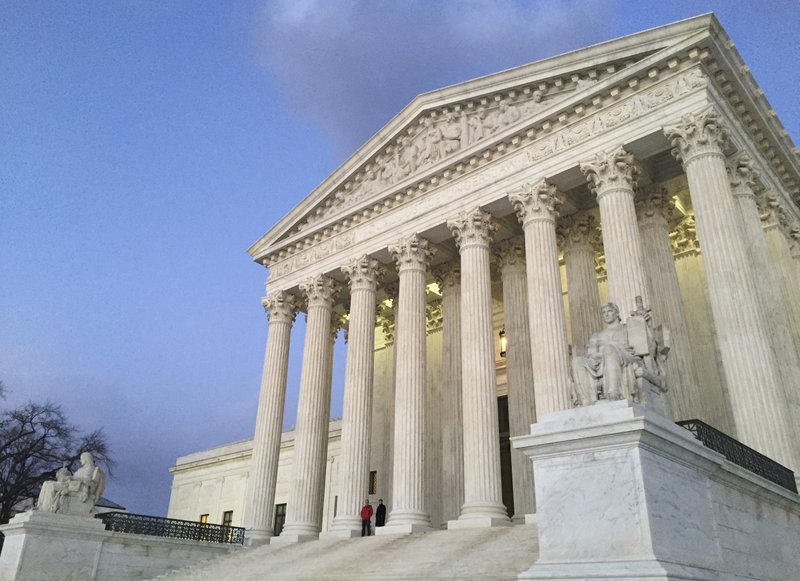Chief Justice John Roberts broke with the Supreme Court's other conservative justices and his own voting record on abortion to block a Louisiana law requiring abortion providers to have admitting privileges at a nearby hospital.
Roberts didn't explain his decision late Thursday to join the court's four liberal justices.
Since the retirement of Justice Anthony Kennedy last summer, Roberts has become the court's swing vote.
"People need to know that we're not doing politics. They need to know that we're doing something different, that we're applying the law," Roberts said during an appearance this week at Tennessee's Belmont University.
It was the fourth time in recent weeks that Roberts held the decisive vote on 5-4 outcomes that otherwise split the court's conservative and liberal justices.
In late December, Roberts joined the liberals to keep Trump's new asylum policy from taking effect. It would have prevented people from making asylum claims if they didn't enter the United States at a border crossing. Then, in January, Roberts voted with the conservatives to allow restrictions on military service by transgender individuals to be put in place.
On Thursday, a half hour before the court acted on the Louisiana law, Roberts voted with the conservatives to deny a Muslim death row inmate's plea to have his imam with him for his execution in Alabama. The federal appeals court in Atlanta had ordered the execution halted, but the Supreme Court lifted the hold and allowed it to proceed.
The final vote was the order to keep Louisiana's admitting privileges law on hold while the court decides whether to add the case to its calendar for the term that begins in October. Louisiana's law is strikingly similar to a Texas measure the justices struck down in 2016.
A district judge had struck down the Louisiana law because he found it would have resulted in the closure of at least one, and perhaps two, of the state's three abortion clinics, and left the state with no more than two doctors who could meet the law's requirements. But the federal appeals court in New Orleans upheld the law, concluding it was not certain that any clinic would have to close.
So much of what the court has done in recent weeks has been through emergency appeals, cases that call for temporary votes. Unlike in cases that are argued and decided, the votes come with little explanation. When there is an opinion, it usually is a dissent.
Justice Brett Kavanaugh wrote the only dissent in the Louisiana case, arguing that the court should have allowed the law to take effect because it is not clear that doctors would have been unable to obtain hospital privileges during a 45-day transition period.
Democrats and liberal groups on Friday pointed to the ruling to argue that Kavanaugh would vote to overturn Roe v. Wade, focusing their ire on Sen. Susan Collins, a Maine Republican who supported Kavanaugh's nomination last year and faces a tough 2020 reelection.
Collins delivered a 44-minute-long floor speech in October declaring her support for Kavanaugh. At the time, Collins, who supports abortion rights, said she did not believe that Kavanaugh would vote to overturn the landmark 1973 Roe v. Wade ruling that legalized abortion.
Collins' communications director, Annie Clark, said it was "clear that a lot of the critics of Justice Kavanaugh's dissenting opinion haven't even read it."
"If the far left groups weren't targeting Senator Collins for Justice Kavanaugh, they would be targeting her for something else," Clark added.
Brian Fallon, the director of Demand Justice, a liberal group that opposed the Kavanaugh nomination, said the group will launch a digital ad buy of more than $10,000 next week in Maine to inform voters of how Collins's vote for Kavanaugh helped lead to the ruling Thursday. He said coming Supreme Court cases that will be decided before the next election will give more opportunities to make the Kavanaugh vote costly for Collins.
"These are all issues that we think will make Collins look like just another politician for having supported Kavanaugh," Fallon said. "We will be able to say, 'I told you so.' "
Information for this article was contributed by Mark Sherman of The Associated Press; and by Felicia Sonmez, Michael Scherer and Robert Barnes of The Washington Post.
A Section on 02/09/2019
